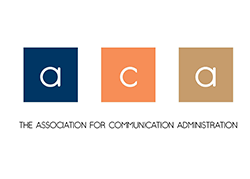Abstract
This articles examines the question: What is good communication? The nature of good communication is both ambiguous and ambivalent. This claim can be taken as a reference to the characteristics that defame good communication, or as a reference to the state of scholarly knowledge about the concept of good communication. On its face, the statement seems clear, and yet, in claiming ambiguity and ambivalence, it is a self-fulfilling prophecy. Such are some of the subtleties of communication itself, and it is such subtleties that require a re-examination of the composition of good communication. The qualifier "good" suggests a nexus of ethics and pragmatic quality, and this serves as a useful starting point for embarking upon a discussion of communication competence. Communication competence is commonly defined in terms of a continuum of quality, ranging from bad to good. However, what constitutes "bad" and "good" is a considerably contested site in the field of communication and philosophy, as the question naturally suggests intersections with ethics and ideology. Any criterion upon which goodness and badness would be judged carries with it ideological implications, which in turn have implications for the scientific status of underlying theory and operationalization, as well as the practical application of any assessments derived from such a theory.
Recommended Citation
Spitzberg, B. H. (2000). What is good communication? Journal of the Association for Communication Administration, 29(1), 103–119.


